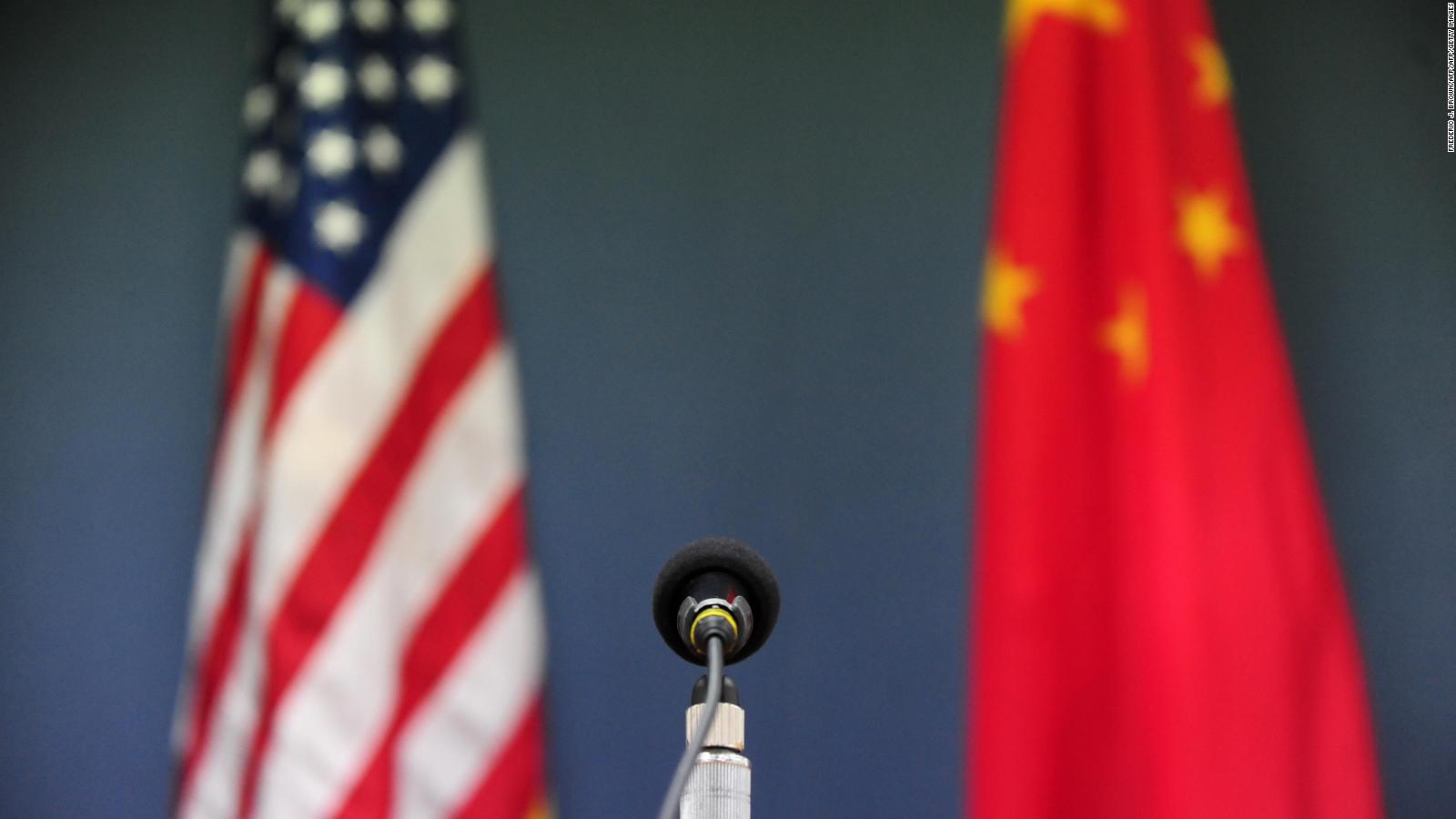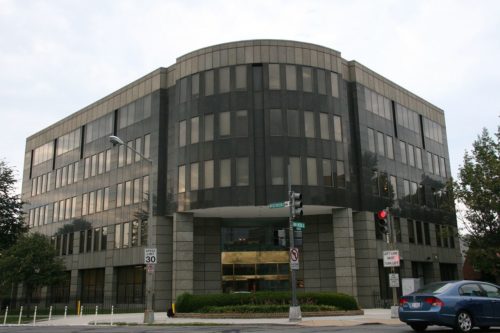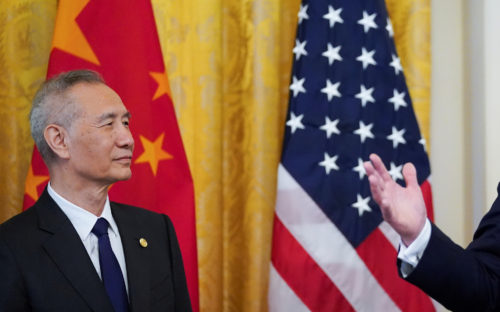Trade war, day 112: U.S. refuses to negotiate before China shows its hand

As has been the case for about two months now, despite a glimmer of hope for negotiations that was quickly dashed in mid-September, American and Chinese officials are at an impasse over the trade war. The Wall Street Journal has new details (paywall) on the current situation:
- Since mid-September, Beijing has asked to negotiate, “including asking U.S. Treasury Undersecretary David Malpass to resume talks.”
- Malpass “declined — with the backing of the White House trade team — until the Chinese present a formal offer.”
- That “formal offer” is expected to be based on an eight-point list of demands that the Trump administration gave Beijing way back in May, “ranging from halving the $376 billion trade deficit to curtailing much of China’s subsidies for high-tech industries.”
- China divided that eight-point list into 142 more individual points, and in August told the U.S. that 122 of these were negotiable — half immediately, and half over time — but that the last 20 were off-limits for national security or other reasons. China did not specify which points were non-negotiable, and the U.S. wants to know.
- Beijing doesn’t want to tell Washington exactly what it is willing to compromise on for two reasons: “First, it would reveal their negotiating position. Second, Beijing fears that Mr. Trump could make any offer public in a tweet or statement as a way to lock in any concessions by China.”
- China wants assurances that tariffs will be reduced if they give a specific list. The U.S. says it will not negotiate or budge on tariffs if it does not see the list first.
If you are looking to catch up on how this chasm of trust between the two governments came to be, the Washington Post has an excellent article for you: How the U.S. and China misread the signals in the trade war. A few key points among many in the story:
- At least three times, in Beijing’s eyes, Donald Trump has unexpectedly backtracked on tentative trade-related agreements or activities that cabinet-level officials were working on.
- “As many as 10 Americans can claim to be speaking for President Xi to President Trump and vice versa,” but “the messages were not internally consistent,” according to the Hudson Center’s Michael Pillsbury, who himself has played a role as an intermediary, according to Wall Street Journal reporting.
- A group of Chinese researchers were stopped and searched when they landed in San Francisco earlier this year, in a previously unreported incident. These included some senior members of the China Institutes of Contemporary International Relations, an influential think tank in Beijing, leading China to think the security measures were politically motivated.
- “The Chinese are becoming convinced that the U.S. is an active enemy and needs to be treated as such,” says former diplomat Chas Freeman, Jr., who was recently interviewed on the Sinica Podcast.
- “Frustration has turned into exasperation. This is a geopolitical earthquake in the making and the implications are huge,” Freeman adds.
More U.S.-China and trade war news:
- State media urges clearer communication
Beijing tells Washington to be less ‘erratic’ on trade war as Xi-Trump meeting nears / SCMP
“The United States has been erratic and vague in talking to China and should change its style to de-escalate trade tensions, Xinhua said in an editorial on Wednesday.” - Low-level official contact
US and China officials meet ahead of possible talks between Xi Jinping and Donald Trump / SCMP
Alan Turley, deputy assistant secretary on China and Mongolia in the US Commerce Department, briefly met with his Chinese counterpart while on a stopover in Beijing — but there is no indication that anything of substance was discussed. - Effects on Southeast Asia
Trade war will drive Chinese investment in Asean to US$500 billion by 2035, think tank says / SCMP
ZTE rebuilds its business
ZTE profits sink, but sales are recovering ‘rapidly’ after U.S. ban / WSJ (paywall)
“The Shenzhen, China, company reported a net income of 564 million yuan ($81 million) for the third quarter, down 65% from the period a year ago. The company said its business was bouncing back quickly following a devastating three-month ban on purchasing parts from U.S. suppliers this summer, which forced it to suspend operations.” - Chinese students in American high schools
For Chinese high-schoolers, there’s value to living and learning in Iowa / Christian Science Monitor
“A confluence of wants, needs, and dreams — including empty school desks and parents with money — begets an education and business model that is bringing more young students from China to the US.” - Currency concerns — 6.95 yuan to the dollar
Hao Hong 洪灝, CFA on Twitter: “CNH/CNY breaking into YTD new highs. Heard someone sold CNY for 60bn USD each day on shore for the last two days. The highest volume on record. Every trader is watching this.”
Previously in The China Project’s trade war coverage:
Trade war, day 111: Companies buckle up for supply chain shifts






